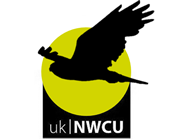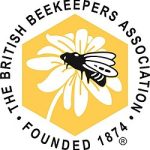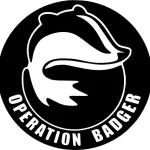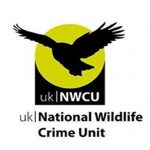 POLICE SCOTLAND LAUNCH FORTH PHASE OF OPERATION WINGSPAN, AS PART OF YEAR-LONG CAMPAIGN TO TACKLE WILDLIFE CRIME IN SCOTLAND.
POLICE SCOTLAND LAUNCH FORTH PHASE OF OPERATION WINGSPAN, AS PART OF YEAR-LONG CAMPAIGN TO TACKLE WILDLIFE CRIME IN SCOTLAND.
Police Scotland’s yearlong focus on wildlife crime is now concentrating on Raptor Persecution.
Raptor Persecution is a highly emotive subject and as such receives a significant amount of interest from members of the public, particularly in rural communities and local and national media.
- Scotland is home to many species of raptors (birds of prey). These birds are not only key indicators of a healthy environment, but also attract visitors from around the world to enjoy our natural heritage and contribute to our economy. All birds of prey have legal protection in Scotland. While some species, such as Common Buzzards, are abundant and widespread, others such as Golden Eagles or Hen Harriers are much rarer. Birds of prey are threatened by the actions of criminals who deliberately shoot, trap, poison them or destroy their nests. Such crimes are punishable by imprisonment. If you have knowledge of people killing or trying to kill raptors report it to police or anonymously via Crimestoppers.
- The trapping of certain types of animal is allowed under certain circumstances. Birds of prey should not be trapped but sometimes this happens accidentally. It is illegal for a trap operator to fail to release a bird of prey if it enters a trap. If you find a bird of prey in a trap or are unsure if a trap is being used legally, report it to police or anonymously via Crimestoppers. Additionally, if you believe an animal or bird is being subjected to unnecessary suffering report it, as quickly as possible, to the Scottish SPCA. Do not interfere with any traps you find.
- The poisoning of birds of prey is illegal, and is punishable by imprisonment. This crime is typically committed by putting illegal and very toxic pesticides on a bait, usually eggs or the cut-open remains of a bird or rabbit and leaving it on open ground. Poison is indiscriminate, potentially killing any bird or animal, including dogs or cats, that consume or even touch a bait. If you find a dead bird of prey or animal that you think may have been poisoned, or something you think may be a bait, keep children and pets away and under no circumstances should you touch it. Report it to police or anonymously via Crimestoppers, as quickly as possible.
- Police Scotland work closely with partner agencies and use modern investigative techniques including forensics and technology to identify when raptor persecution is taking place, investigate it and bring offenders to justice. Police Scotland are actively pursuing criminals who persecute birds of prey. If you have knowledge of people killing or trying to kill raptors report it to police or anonymously via Crimestoppers.
- Keep your eyes open, if you suspect something report it to the police.
#EndWildlifeCrime
Visit the Police Scotland website – https://www.scotland.police.uk/wildlifecrime to better understand what wildlife crime is; what to do if you witness wildlife crime and how to report.
See here for RSPB video on Raptor Persecution.
Wingspan Phase 4 – Raptor Persecution Poster.
Operation WINGSPAN
Operation Wingspan, a 12-month Police Scotland campaign, will focus on the seven wildlife crime priorities set by the UK Wildlife Crime Tasking and Co-ordination Group and the National Wildlife Crime Unit. The campaign will be delivered through a mixture of operational policing activity, internal training, strong partnership working and action to raise public awareness of the seven priorities of wildlife crime, these are:
- Convention on International Trade of Endangered Species (CITES)
- Badger Persecution
- Bat Crime
- Raptor Persecution
- Freshwater Pearl Mussels
- Poaching (Deer poaching/coursing, fish poaching and hare coursing)
- Cyber enabled wildlife crime
 DCS Gary Cunningham, Police Scotland says: “Scotland’s vast, beautiful habitat is home to internationally renowned species that attract thousands of nature lovers and tourists every year. However, there are those who seek to either destroy this natural habitat or kill protected species illegally for their own personal gain or even ‘sport’. Crimes committed against wildlife are often cruel and barbaric, from using poisons or snares to hunting deer or badgers with dogs – the injuries they inflict can often result in slow, painful deaths. Reports of wildlife crime doubled during lockdown. Increased reporting is to be welcomed but we will continue to work closely with a wide range of partner organisations to reduce the harm to species targeted by criminals and the communities who rely on them for employment and tourism across Scotland.”
DCS Gary Cunningham, Police Scotland says: “Scotland’s vast, beautiful habitat is home to internationally renowned species that attract thousands of nature lovers and tourists every year. However, there are those who seek to either destroy this natural habitat or kill protected species illegally for their own personal gain or even ‘sport’. Crimes committed against wildlife are often cruel and barbaric, from using poisons or snares to hunting deer or badgers with dogs – the injuries they inflict can often result in slow, painful deaths. Reports of wildlife crime doubled during lockdown. Increased reporting is to be welcomed but we will continue to work closely with a wide range of partner organisations to reduce the harm to species targeted by criminals and the communities who rely on them for employment and tourism across Scotland.”
For further information about wildlife crime in Scotland visit www.scotland.police.uk/wildlifecrime





